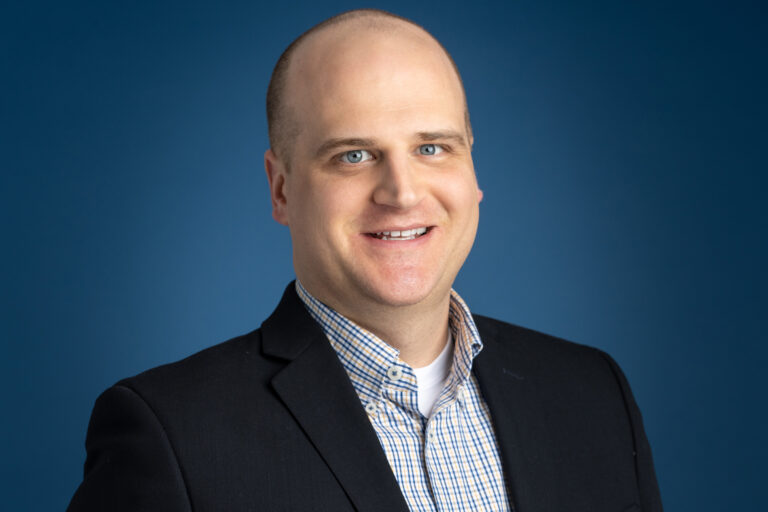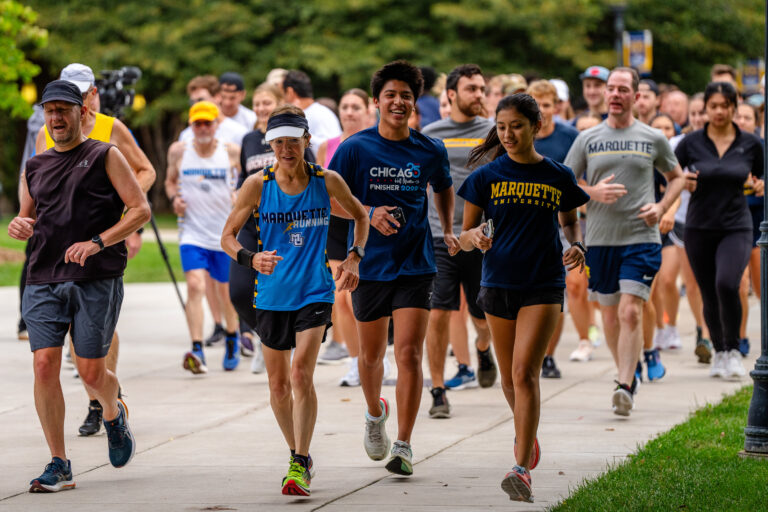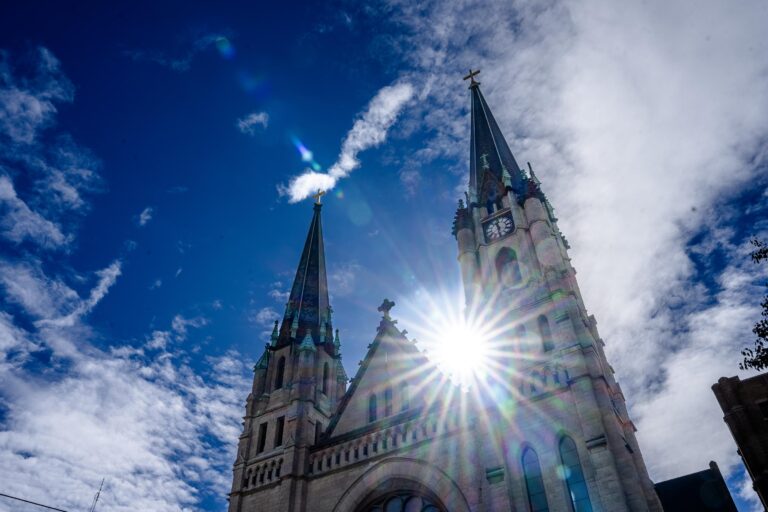Brian Troyer, dean of undergraduate admissions, has been elected to serve as president of the National Catholic College Admission Association for the 2025-26 academic year and will spend the 2024-25 year as president-elect. The appointment began with the National CCAA membership meeting in January.
The National CCAA is a nonprofit organization of Catholic colleges and universities committed to promoting the value of Catholic higher education and to serving students, parents and counselors. Troyer is coming off a yearlong tenure as secretary on the NCCAA Board of Directors. After serving as president, he will spend the 2026-27 academic year as past-president.
“Brian’s leadership has been instrumental in the university’s successful enrollment strategies-particularly amid a period of recruitment challenges facing the higher education industry as a whole,” said Dr. John Baworowsky, vice president for enrollment management. “He uses a keen, data-based approach and impressive creativity, along with a talent for teambuilding, to shape incoming first-year classes that continue to exceed expectations in terms of academic excellence and diversity.”
The board of directors serves to further the mission of the National CCAA, promoting the value of Catholic higher education and serving students, parents and counselors. In addition to the executive director of the National CCAA, the board is composed of admission and enrollment leaders from member institutions and secondary school counselors from Catholic high schools.
Troyer was named dean of undergraduate admissions in 2016 and has overseen undergraduate admissions during a critical time in higher education.
In recent years, Troyer and his team have deployed new strategies to help achieve Marquette’s enrollment goals. In 2019, Marquette joined a growing list of institutions offering test optional admissions policies. Admissions has also found innovative ways to attract students from new and emerging markets. For the fall 2024 admissions cycle, Admissions implemented innovative inquiry-generating strategies that began three years ago, and introduced Marquette’s first Early Action application timeline. For Fall 2024, they have seen more than a 20% increase in applications. To bring in Marquette’s most recent first-year class, Troyer and his team expanded a pilot fly-in program; they also held recruitment dinners and receptions in 27 cities, at which over 50% of attendees committed to Marquette. He and his team also saw a nearly 4% increase in admitted student visitors on campus.
The diversity of the class is noteworthy, as more than 33% of the fall 2023 class identifies as a student of color, the second-straight year that figure has seen a greater than 4% increase. True to the university’s Catholic, Jesuit mission and heritage, first-generation students make up over 23% of the incoming class, and 161 students hail from Jesuit high schools. Importantly, Marquette furthered its commitment to academic excellence; thethe incoming class boasted an increase in average GPA. This average has increased again in the Fall 2024 admit pool, as have the average ACT and SAT scores for applicants who chose to submit them.



